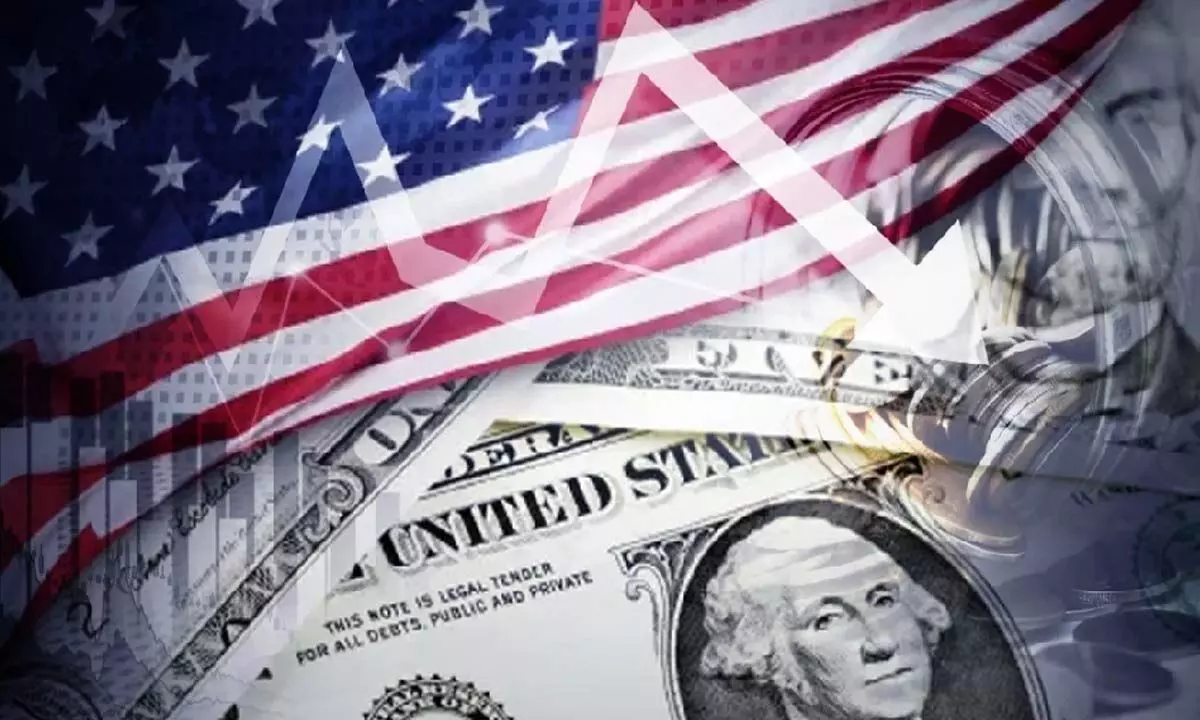USA’s debt default will rip apart India’s economic cushion
Onus on RBI and GOI to protect the economy from crisis
image for illustrative purpose

The US is days away from a potential debt default, a catastrophic and self-inflicted outcome that would wreak havoc on US consumers as well as the economy and send shock waves across the entire global financial system. A default could cause widespread sufferings. And the resulting income shock could lead to a recession that could destroy many jobs and businesses
In a big blow to India’s economic cushion, the US is defaulting on its debt and downgrading its rating, thereby weakening the dollar.
Not to mention that 40 per cent of India’s forex reserves are held in US dollars and bonds. US defaulting on its debt will result in a massive blow to India’s economic cushion.
India has $ 220 billion of the total $ 31 trillion of US debt. Any default will result in a massive volatility in both in the domestic and equity markets. The dollar may fall against major currencies but Asian and emerging market currencies will fall against the dollar as it happened in 2011-12 when US was close to default.
Taking to Bizz Buzz, Anil Kumar Bhansali, head of treasury, Finrex says, “Our FEX reserves would become uncertain as 220 billion is placed in US treasuries. Stock markets may tumble and FPI investments may fly out. US will be thrown into recession and its GDP will shrink, which will affect our exports and international liabilities.”
However, domestic economy would surely be insulated by RBI and GOI taking the necessary steps to protect the economy. Even if the rupee goes to 83.50 and 84, it will claw back to 82 sooner than later. The rising risk could put international investors to put money elsewhere, he said.
The US is days away from a potential debt default, a catastrophic and self-inflicted outcome that would wreak havoc on US consumers as well as the economy and send shock waves across the entire global financial system.
A default could cause widespread suffering as Americans lose the income that they need to get by. And the resulting income shock could lead to a recession that could destroy many jobs and businesses.
The debt ceiling – also known as the debt limit – is the total amount of debt the Treasury Department can borrow to meet its financial obligations.
Among those obligations are social security payments, interest on the national debt, tax refunds, military salaries and more.
The US government would be unable to direct payments to members of the military or people who rely on social security. Interest rates would soar, leading to increased payments on mortgages, car loans and credit cards.
It would almost certainly tip the US into a recession, with high unemployment. Even in the short term, a default would cease one tenth of US economic activity and cost two million positions, separate
analyses from Goldman Sachs and Moody's show.
USA is currently printing $ as its way out of any crisis. White House economists estimated that a default would cost eight million jobs and the stock market would plunge 45 per cent.
M.V. Hariharan, a treasury expert and retired DGM of SBI, says, “India's forex reserves getting devalued. Further our exports to US could get affected by the recession there. The markets will not see funds coming in as investors tighten their belts.”
Sixty per cent of the world's foreign currency reserves are in US dollars and a default would severely undermine the status of the dollar as investors lose confidence in Treasury securities, he added.
The US credit rating would also most likely be downgraded. The global economy, too, would suffer in the event of a US debt default. A weakened US dollar will open the door for another currency to challenge it as the world's reserve.
Should the nation's currency weaken, it would make payments more expensive for low-income countries struggling with debt.

